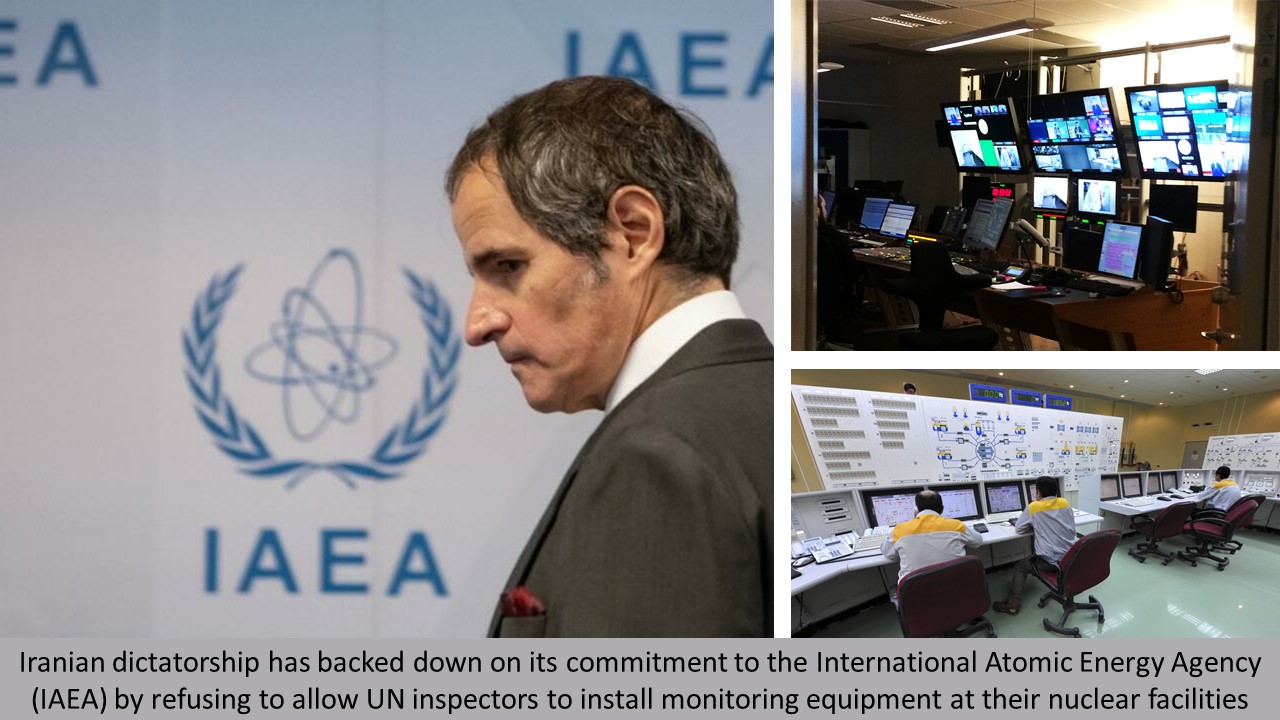
(PMOI / MEK Iran) and (NCRI): Iran Backtracks on Nuclear Commitments Following IAEA Agreement.
The head of the United Nations’ nuclear monitoring agency reminded the international community over the weekend that the inspections regime at an Iranian nuclear plant in Karaj was still “intact.”
Inspections regime was effectively eliminated across Iran
Given that the inspections regime was effectively eliminated across Iran in February, this was clearly an understatement. Even after the Director-General of the International Atomic Energy Agency (IAEA) reached an agreement with Iranian authorities to allow routine maintenance on monitoring equipment at various nuclear facilities, Rafael Grossi’s comments singling out the Karaj facility reflected the fact that there is a persistent gap in data collection there.
However, it’s worth noting that the deal wasn’t publicized until two weeks after the maintenance deadline, implying that the hard discs attached to surveillance cameras and other devices were likely full during that time, creating a large information gap that may never be filled. Meanwhile, the IAEA is compelled to accept Iran’s word for it that it will follow through on a commitment to close the remaining gaps, which have now been open for more than eight months.
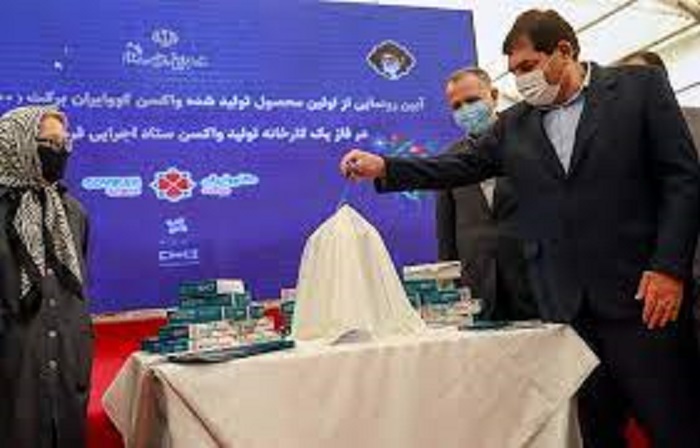
(PMOI / MEK Iran) and (NCRI): Mohammad Mokhber was sanctioned by the EU in 2010 for his participation in the regime’s missile and nuclear programs.
International inspectors to leave the country
Last year, the Iranian parliament passed a resolution requiring international inspectors to leave the country if US sanctions were to continue beyond February. Grossi’s efforts averted the worst-case scenario, but they did not prevent the IAEA from being cut off from both direct and remote access to nuclear sites.
The agency would no longer be able to monitor the goings-on at such locations through security footage, according to reports at the time. Inspectors were left almost entirely in the dark and forced to rely on educated guesses in the preparation of their most recent quarterly reports on Iran’s nuclear activities and the status of the 2015 agreement known as the Joint Comprehensive Plan of Action or JCPOA, which was not widely understood until much later. The new head of Iran’s Atomic Energy Organization mocked the situation this month, claiming that Iran had accumulated more than 120 kg of uranium enriched to 20% fissile purity, despite the IAEA’s estimate of fewer than 90 kg in September.
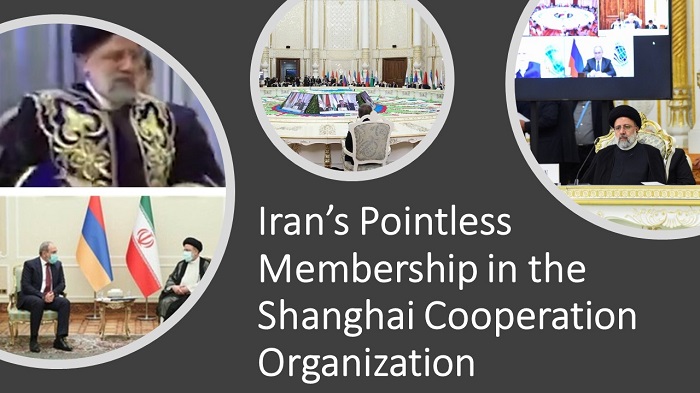
(PMOI / MEK Iran) and (NCRI): the obstacle was removed after the nuclear deal between Iran and the P5+1 major world powers was signed in 2015.
Nuclear blackmail
Mohammad Eslami’s gloating remark is merely the latest example of a long-running approach that could be regarded as nuclear blackmail. The regime’s public attitude on negotiations in Vienna aimed at salvaging the JCPOA has clearly demonstrated the intent of that strategy. Six rounds of such talks were held earlier this year, but the talks came to a halt in June when Iran’s rigged presidential election installed an ultra-hardline regime.
The Raisi administration raised the notion of convening exploratory negotiations in Brussels with representatives from the European Union, the United Kingdom, France, and Germany last week, following numerous pledges that the Vienna talks would restart “soon.”
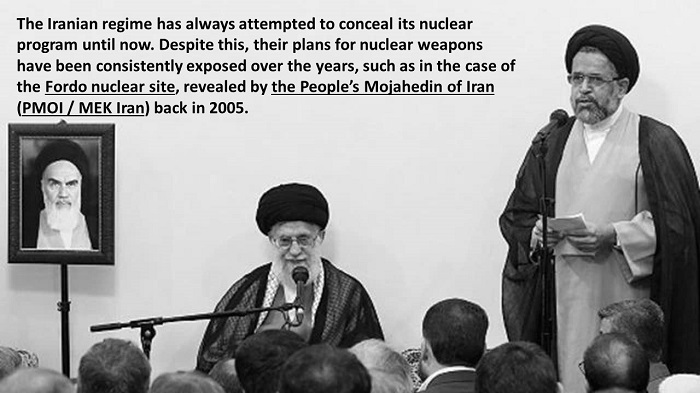
(NCRI) and (PMOI / MEK Iran): The Iranian regime has always attempted to conceal its nuclear program until now.
The UN agency has been frustrated
There’s reason to suspect that the UN agency has been frustrated by this tendency for longer than many people realize. Grossi’s remarks on Karaj’s shattered monitoring processes came just two days after he said it would be a “good idea” to legally sanction the Islamic Republic for its lack of compliance and blatant violations of the JCPOA’s terms. Grossi, on the other hand, appeared hesitant to respond to the question, presumably because he was aware that doing so would run against the European Union’s well-known aversion to saying anything that would irritate Iranian officials.
It’s too early to tell, but stories of Western consensus and Grossi’s steady shift toward outspoken criticism could signal that the tension is now dissipating. We should certainly hope so because if the EU and the IAEA continue to delay efforts to hold the Iranian regime accountable, we can only expect Tehran to continue exploiting its impunity to demand more and more concessions, create more and more delays, and expand a nuclear program that already has the country on the verge of a nuclear breakout.
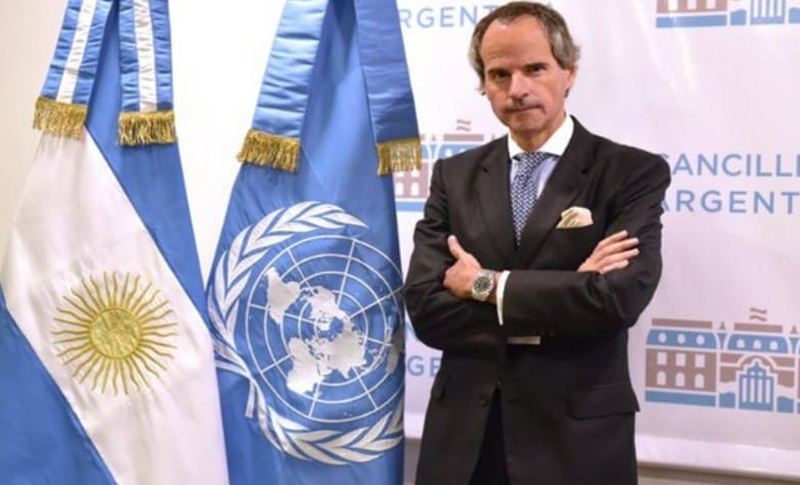
(NCRI) and (PMOI / MEK Iran): Grossi, a 58-year-old career diplomat from Argentina who worked as a senior IAEA official from 2010 to 2013, said he “already knows some of the main decision-makers in Iran.”
MEK Iran (follow us on Twitter and Facebook)
and follow Maryam Rajavi’s on her site 
and follow NCRI (Twitter & Facebook) and People’s Mojahedin Organization of Iran – MEK IRAN – YouTube
